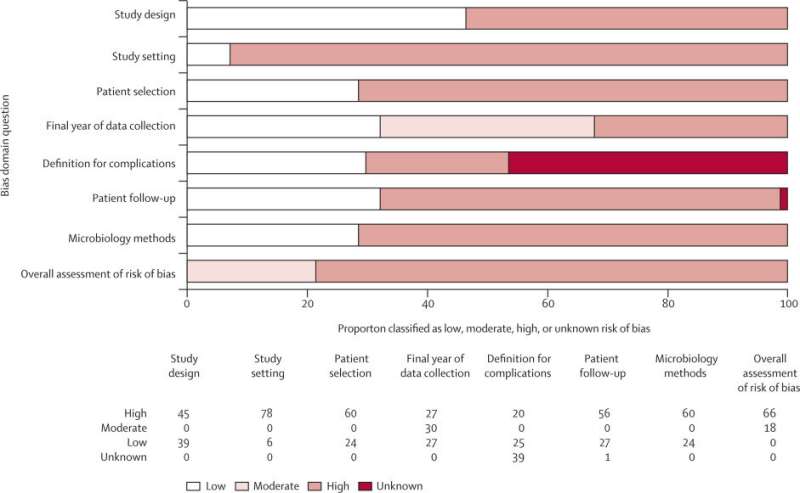Urgent intervention needed for non-typhoidal salmonella invasive disease

Researchers are calling for urgent investment in the prevention of a devastating emerging disease that kills tens of thousands of people each year.
A global systematic review led by the University of Otago's Professor John Crump and Dr. Christian Marchello, of the Centre for International Health, and published today in The Lancet Infectious Diseases reports on the frequency of a range of serious complications and very high risk for death among patients with found non-typhoidal salmonella invasive disease.
Non-typhoidal salmonella invasive disease is an emerging neglected infectious disease that affects mainly young children and immunocompromised adults in sub-Saharan Africa. It affects more than half a million people a year and is fatal in 15 percent of cases—about 77,500 deaths worldwide annually.
On behalf of the global Vacc-iNTS Consortium, Professor Crump, Dr. Marchello, and Dr. Megan Birkhold, of the University of Maryland School of Medicine, investigated the complications and mortality associated with the disease. The Consortium—which has 12 partners from eight different countries including Burkina Faso, Ghana, Kenya and Malawi aims to advance the clinical development of an innovative vaccine to tackle the serious and often fatal infection.
"Despite being a leading serious bacterial disease in countries of sub-Saharan Africa, non-typhoidal salmonella invasive disease is not widely known or appreciated and burden of disease estimates need improving," Professor Crump says.
In high-income countries, like New Zealand, non-typhoidal salmonella is best known as a cause of food poisoning, where patients usually recover without treatment.
"In sub-Saharan Africa, young children and immunocompromised adults are infected in the bowel but do not usually get diarrhea. Instead, because of concurrent health problems like malnutrition, malaria, HIV, and other reasons that are not well understood, many people get invasion to the blood and very serious illness called blood poisoning or sepsis, that often leads to death."
The Vacc-iNTS Consortium is working on phase 1 trials of a candidate vaccine, but global support, funding and awareness are needed.
"Our study has shown that a range of very serious complications are frequent among non-typhoidal salmonella invasive disease patients and the disease has a 15 percent fatality ratio. If you compare this case fatality ratio with 0.2 percent for malaria and two percent for typhoid fever, we start to appreciate how deadly non-typhoidal salmonella invasive disease is and why we must do more to prevent transmission," Professor Crump says.
The study refines the burden of the disease and justifies vaccine development efforts.
"We need to re-double efforts to develop and evaluate vaccines to prevent this terrible disease."
Equally as important is the need for more research into non-vaccine prevention.
"We need to understand how the bacteria responsible are transmitted so that we can interrupt transmission using non-vaccine approaches. For example, are most people exposed via contaminated water or food, in which case improvements in the safety of water or food by better sanitation could help to prevent infection? Is the main reservoir in people or animals, in other words do we need to control human feces or animal feces as well to prevent this?"
More information: Christian S Marchello et al, Complications and mortality of non-typhoidal salmonella invasive disease: a global systematic review and meta-analysis, The Lancet Infectious Diseases (2022). DOI: 10.1016/S1473-3099(21)00615-0


















